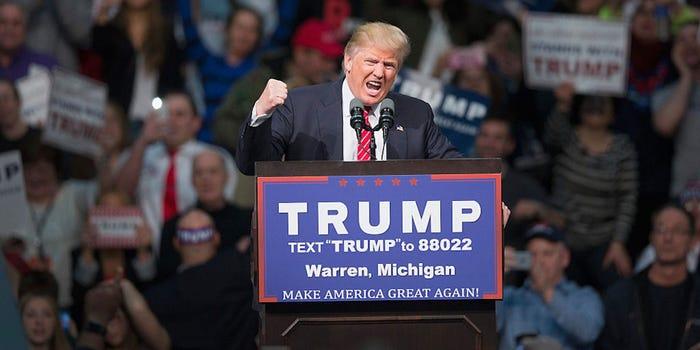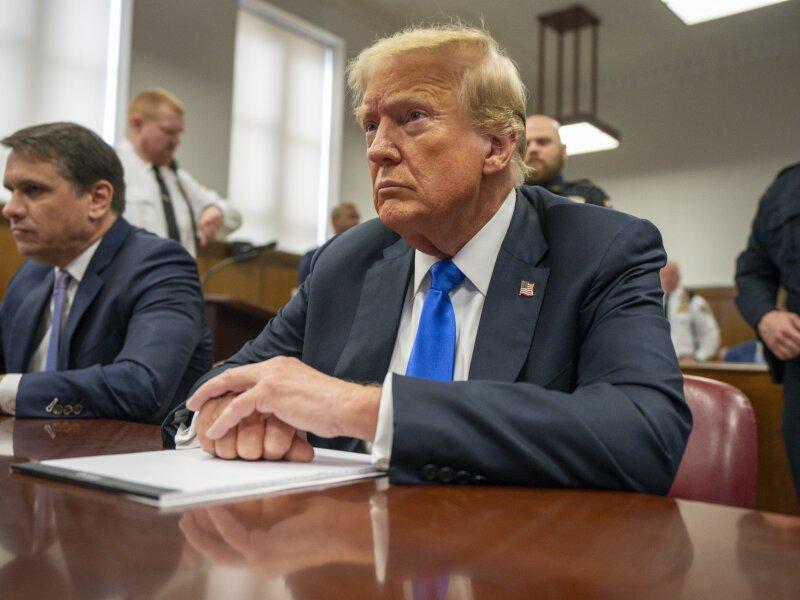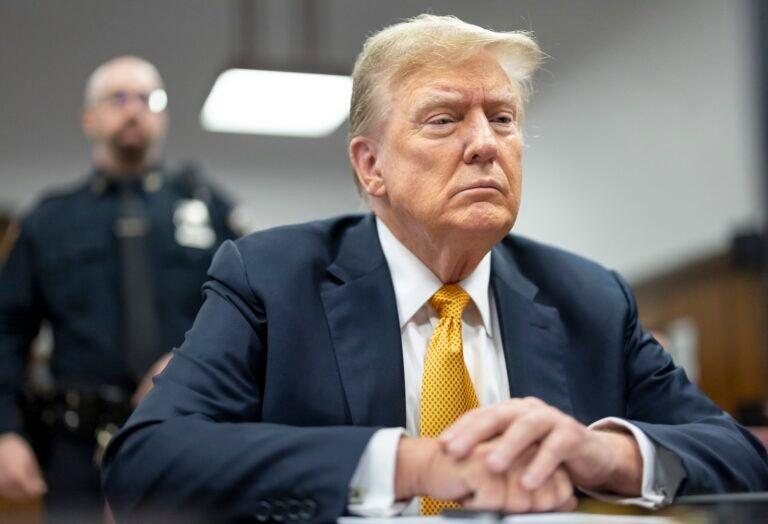
 |

#Trump #HushMoney #GOP #Democracy #PoliticalConflict #LegalCase #USPolitics #DonaldTrump #PartisanTensions #RuleOfLaw #EthicsInPolitics #2016Election #PoliticalDebate #AmericanPolitics #JusticeSystem
GOP Lawmaker Slams Trump's Hush Money Conviction as 'A Clear Attempt to Undermine Democracy'
In a fiery and impassioned statement, a prominent Republican lawmaker has denounced the recent conviction of former President Donald Trump in the hush money case, calling it "a clear attempt to undermine democracy." The conviction, which revolves around payments made to silence allegations during the 2016 presidential campaign, has become a lightning rod for partisan debate and has profound implications for the American political landscape.
Background of the Hush Money Case
The hush money case stems from payments made to two women who alleged extramarital affairs with Trump, claims he has consistently denied. These payments were made through Trump's then-lawyer, Michael Cohen, who has since served prison time for his role in the scheme. Prosecutors argued that the payments were meant to influence the outcome of the 2016 election by preventing damaging stories from emerging during the campaign. Trump was charged with violating campaign finance laws by not disclosing these payments as campaign expenditures.

The Conviction and Its Immediate Reactions
The conviction of Trump on charges related to these payments has been met with a barrage of reactions from both sides of the political aisle. For many Democrats and critics of the former president, the conviction is seen as a victory for accountability and the rule of law. They argue that no one, not even a former president, is above the law and that this case sets an important precedent for holding powerful individuals accountable for their actions.
However, Republicans and Trump supporters view the conviction through a starkly different lens. The GOP lawmaker leading the charge against the conviction has framed it as a politically motivated attack designed to weaken Trump's influence and derail his potential future political ambitions. In a statement to the press, the lawmaker argued that the prosecution was an "orchestrated effort by political adversaries to use the judicial system to achieve what they couldn't at the ballot box."

Arguments from Both Sides
The GOP Perspective
From the perspective of Trump's defenders, the case represents an egregious overreach of legal authority, motivated by a desire to silence a prominent political figure. They contend that the charges are disproportionate to the alleged offenses and that the prosecution has selectively targeted Trump for actions that, while ethically questionable, are not uncommon in the high-stakes world of political campaigns.
This viewpoint was echoed by several other Republican lawmakers and conservative commentators, who argue that the timing of the prosecution, coming as Trump remains a central figure in Republican politics, is highly suspicious. They suggest that the aim is to cripple Trump's chances in future elections by tarnishing his reputation and tying him up in legal battles.
The Democratic Perspective
On the other hand, Democrats and legal experts who support the conviction argue that the case is a straightforward matter of upholding the law. They assert that Trump's actions were clear violations of campaign finance laws designed to ensure transparency and fairness in the electoral process. By failing to disclose these payments, they argue, Trump not only broke the law but also undermined the integrity of the election.
Furthermore, supporters of the conviction point out that Trump's legal troubles are not limited to this case. They note that he faces multiple investigations and lawsuits related to his business practices, his role in the January 6th Capitol riot, and other matters. These ongoing legal challenges, they argue, paint a picture of a pattern of behavior that necessitates judicial intervention.

Implications for American Democracy
The conviction and the ensuing debate have significant implications for American democracy. For many, the case highlights the deep divisions within the country and the extent to which partisan loyalty can shape perceptions of justice and the rule of law. It also raises important questions about the limits of legal accountability for political figures and the potential for the judicial system to be used as a tool of political warfare.
Looking Ahead
As Trump prepares to appeal the conviction, the legal battle is far from over. The appeals process is likely to be lengthy and contentious, with both sides preparing for a protracted fight. Regardless of the outcome, the case will likely continue to be a focal point in the broader conversation about legal accountability, political power, and the future of American democracy.
Conclusion
The GOP lawmaker's condemnation of Trump's conviction as "a clear attempt to undermine democracy" encapsulates the deep-seated divisions and intense emotions that this case has provoked. As the legal and political ramifications of the conviction continue to unfold, the case will undoubtedly remain a significant and controversial chapter in the story of American politics.
Author: GEximius